Understanding Retinol Percentages and Retinoid Strengths
Retinoids like retinol come in different types, percentages and strengths. To figure out which strength of retinoid to use you need to know that each retinoid has its own particularities that effect how strong they are. I'm a dermatologist and I always begin my patients on a low strength retinol and slowly increase the strength. You can use the chart in this blog to find which retinoids are strongest.
Retinol, retinal. tretinoin, adapalene, tazarotene, and trifarotene are all retinoids but their strengths and concentrations vary. Understanding retinoid percentages is important when beginning a retinoid. If you're a skin care beginner, and have never used retinoids before, check out this blog to get started!
As a thank you for reading our educational content, use the one-time code "STSBlog20" at checkout for 20% off anything in our store.
Retinoid Strength Table of Contents
Retinoid basics
Whether you are starting retinoids for the first time, have been on retinol and want to change to a higher retinol concentration, or you want to switch from retinol to a prescription strength retinoid, understanding retinol strength charts is important. There are many different types, percentages, concentrations, and strengths of retinoids.
Keep reading to learn how retinol percentages and formulation also contribute to retinoid strength. When you use retinoids in your skin routine also determines how effective the retinoid is.
How do you know which retinol strength to use? It depends upon which of the 16 Baumann Skin Types you are.
Which retinol is the strongest?
Retinol is a type of retinoid.
Retinoids listed in order of strength from weakest to strongest are:
- Retinyl palmitate
- Retinol
- Retinaldehyde
- Adapalene
- Trifarotene
- Tretinoin
- Tazarotene
Retinol Strength Chart

When comparing strengths of retinoids, it is important to understand that each Vitamin A compound is different and has different potency. Retinol 0.025%, tretinoin 0.025% and tazarotene 0.025% are not the same strength even though they are all 0.025%. The retinoid strength chart below compares retinoid potencies when compared at the same percent.
The chart shows that :
- Tazarotene and trifarotene are stronger than tretinoin.
- Adapalene and retinol are not as strong as tazarotene and trifarotene.
- Retinal (retinaldehyde) and retinyl esters like retinyl palmitate or not very potent and are considered weak retinoids because they do not penetrate well into the skin.
What Strength Retinol Should I Use?
When beginning a retinol for the first time, choose a low strength retinol. The best percentage of retinol to use is 0.025% or 0.03%. when starting out.
We can help you shop for the best retinol for your skin type. All you need to do is take our advanced scientific skin type quiz. (It's the same one dermatologist's use in their offices!)
Low Strength Retinol
These are good low strength medical grade retinols that you can get started with:
Medium Strength Retinol
These are the best mid strength retinols to use after finishing at least one bottle or tube of low strength retinol.
High Strength Retinol
These high strength retinols are almost as strong as prescription. After you use these once a night without any problems, switch to a prescription strength retinoid like tretinoin.
Strongest Prescription Retinol Cream
Retinol does not require a prescription. If you are looking for the highest over the counter retinol concentration- 0.1% is the strongest. However, the other ingredients the product also affect the strength.
The strongest and most effective retinol without a prescription is retinol 1% in a formulation that contains penetration enhancers like hyaluronic acid and glycerin. This is also called 10x retinol. Retinol 1% is only a little weaker than prescription tretinoin 0.025%.
High Concentration of Retinol
You cannot get retinol 2%, retinol 2.5% or retinol 3% strengths. The strongest retinol is 1%. The strongest retinols without prescription are the Skinceuticals 1% and the Jan Marini Age Intervention Plus MD.
High Strength Retinol 1%
The strongest of the 1% retinols are formulated in a way to maximize penetration and absorption. These are the 2 strongest retinols which are the closest to prescription strength.
What is Stronger than Retinol?
If you want something stronger than 1% retinol, the next strength up is tretinoin 0.025% cream which requires a prescription. Tretinoin 0.025% is stronger than retinol 1%.
Tazarotene is stronger than tretinoin, even when the percent is the same. For example, Tazarotene 0.1% is stronger than tretinoin 0.1%. Tazarotene 0.1% is the strongest retinoid available.
What retinol strength is right for me?
It is confusing to know what strength of retinol to start. The problem is retinols can be too strong for you and may not be safe in certain situations like pregnancy. When pregnant or breast feeding, consult your dermatologist.
All beginners should start with the lowest strength retinol and slowly work your way up to tretinoin and ultimately tazarotene.
It is important to use them slowly and follow your dermatologist's advice on how to increase to the next higher strength.
Research Studies Comparing Retinoid Strengths
Tazarotene is stronger than tretinoin.
Tazarotene 0.01%, 0.025%, 0.05% and 0.1% cream were compared to tretinoin 0.05% emollient cream in a study that looked at effectiveness on aged mature wrinkled skin.
The fastest and best results were seen with tazarotene 0.1% which produced significantly higher improvement of wrinkles than tretinoin 0.05% emollient cream at week 12 and week 20.
Both tazarotene and tretinoin showed improvement of wrinkles, but tazarotene 0.1% showed the most improvement the fastest.
At week 24 in this study, treatment success rates based on global responses were:
- 67% with 0.1% tazarotene
- 52% with 0.05% tazarotene
- 36% with 0.025% tazarotene
- 41% with 0.01% tazarotene
- 55% with 0.05% tretinoin
- 22% with placebo vehicle
Retinoid side effects were more frequent with the higher concentrations and were generally mild to moderate.
Retinol 0.4% is effective on wrinkles
The best data we have on retinol effectiveness on wrinkles is a study that showed that 0.4% retinol was effective at improving wrinkles under the arms in elderly people.
Retinol was applied under the arm in a non sun exposed area. Wrinkled underarm skin skin improved after 24 weeks of 3 times a week use.4
This study showed that retinol improves aged skin even if the skin does not have sun damage.
Retinoid Cream vs Gel vs Lotion- Which Is Strongest?
How a retinoid is formulated affects the strength by increasing or decreasing absorption. This is why there is a difference in strength between a tretinoin cream, gel or a lotion.
Strength of retinoids in order of lowest to highest based on formulation:
- Cream
- Lotion
- Gel
- Ointment
Gel and serums are more potent than creams because they absorb better into the skin. Ointments are the strongest because of occlusion.
Formulation Affects Retinoid Strength
When the formulation has glycerin, hyaluronic acid, certain oils, and other penetration enhancers added, more will be absorbed. These are often called emollient creams.
The strength of the retinoid depends upon whether it is a cream, lotion, or gel but also if it has hyaluronic acid in it.
The strength of the retinoid also depends when you use it in your skin care routine.
Retinoids are stronger when used before a moisturizer or when an oil is used after the retinoid to slug it into the skin.
Tretinoin Strength
The weakest tretinoin is 0.025%. However, the strength depends on wat other ingredients are in the product as well as the percentage. Here is an example:
There are many brands of tretinoin 0.05% on the market including Retin A and many generic forms. The 0.05% strength comes in creams, gels and lotions. In most cases, gel tretinoin is the strongest- but it depends on if there are any penetration enhancing ingredients in the retinoid formulation.
Altreno is a brand of tretinoin in a lotion formulation that is 0.05% tretinoin and has glycerin. The fact that it has glycerin and sodium hyaluronate (hyaluronic acid) means that Altreno 0.05% is slightly stronger than the tretinoin 0.05% cream version because of increased penetration.
Retinol percentages
Retinol usually comes in the following percentages:
- 0.025%- low strength
- 0.05%- mid strength
- 0.1%- high strength
It usually does not come in 1%, 2% or 2.5%, or 5% strengths.
What percentage is prescription strength retinol?
There is not a prescription strength retinol. Retinol 1% is the strongest retinol and it is available without a prescription. The strongest prescription strength retinoid is tazarotene 0.1% gel.
What is the highest over the counter retinol concentration?
The highest over the counter retinol concentration is 3% but only 1% retinol is currently available.
There is much more to the story about retinol strength than just the concentration or retinol percentage listed on the label.2
Retinol strength is determined by:
- Type of retinol (retinol vs retinyl ester vs retinal all of which can be called "retinol")
- Strength (percent) of retinol
- How retinol is manufactured (was it exposed to air or light that inactivated it)
- Packaging: airless pump, jar or bottle
- What other products ingredients are in the formulation (Bakuchiol, hyaluronic acid, oils, glycerin)
- when the retinol product is used in the skin care routine
Many products that say they have retinol, actually have an ester such as retinyl palmitate or retinal which are not effective. Often the retinol percentage on the product label does not match how much retinol is actually in the product.3
If retinol is not formulated, manufactured, bottled, and stored properly (which is often the case!!!) then the efficacy of the product is questionable.
Most common Retinol Strengths
These are the different strengths of retinol creams and serums:
- Low strength retinol = 0.25% or 2X and 0.3% or 3X
- Mid strength retinol= .5% or 5x
- High strength retinol = 1% or 10x
Some products claim to be retinol 2.5% or retinol 3%, however most of these products are not formulated correctly and therefore are actually not very potent.
We recommend sticking with 0.25%- 1% retinol products and avoiding retinal or retinyl palmitate containing products.
What percentage of retinol is effective?
If retinol is absorbed, even low strength retinol can be effective. As long as you use a good brand that is made properly, a low strength retinol has skin benefits. The higher the strength a retinoid is- the more effective it is, but the more side effects it has
Which Is The Strongest Retinol Prescription?
Retinol is not prescription. The strongest prescription retinoid is tazarotene 0.1% gel.
Tazarotene comes in 0.025%, 0.05% and 0.1%.
Although trifarotene is also a very strong retinoid, there is less data comparing it to the others.
To learn more about the basics of retinoids and the retinoid family of compounds click here.
Strongest Retinol
The strongest retinol without a prescription is retinol 2.5%, however that is not available right now. Retinol 1% is the strongest.
One of the strongest retinol night creams is SkinCeuticals Retinol 1.0.
There are many high strength retinols that are very effective that are 1% strength (these are also often called retinol 10x).
Here is a list of the strongest retinol skin care products:
- Essopi Retinol Treatment Serum 10 x
- Revision Skincare Retinol Complete
- SkinCeuticals 1.0%
- SkinMedica Retinol Complex 1.0
You can shop for the strongest retinols here:
Retinal and Retinaldehyde
Retinal is another name for retinaldehyde. Many people get confused and think retinal is the same as retinol but it is not. Retinaldehyde, positioned within the vitamin A metabolic pathway between retinol and retinoic acid, serves as a direct precursor to retinoic acid, the active form that binds to retinoic acid receptors (RARs). This makes retinaldehyde one step closer to influencing gene expression and cellular functions compared to retinol. Upon topical application, skin enzymes oxidize retinaldehyde to retinoic acid, facilitating a more immediate interaction with RARs to regulate skin cell behavior, thereby enhancing skin renewal, reducing wrinkles, and improving skin texture with potentially less irritation than retinoic acid.
Let us help you find the correct strength of retinoid for your skin type and build a skin care routine from many brands.

Is retinol 2.5% too strong ?
Always start with a low strength retinol (0.025%) and work your way up. Never start with a strong retinol. No retinol is too strong for your skin if you can use it without side effects.
Is 0.1% retinol effective?
The very low strength of 0.1% retinol is not very effective. This is the strength of many drugstore brands of retinol. They are ok to start with, but are not very effective so try to move to a stronger one.
Is 1% retinol strong?
Yes 1% is the strongest retinol available without a prescription.
How much retinol should I use?
Use 1/8 teaspoon which is the size of a green pea. As you get used to the retinol you can increase to 1/4 teaspoon to the entire face.
Can I use glycolic acid with retinol?
Everything in your skincare routine will affect how strong retinol is. Glycolic acid and retinol are both exfoliants, so if you use them together you may overexfoliate and hurt your skin barrier. My advice is to only use glycolic acid with retinol once you are able to use the strongest retinol every night without side effects. It also depends on your skin type if you can tolerate glycolic and retinol together.
Does mixing retinol with moisturizer decrease the strength?
If you apply retinol over a moisturizer or you mix it in your hand with a moisturizer before applying, it will reduce the strength of the retinol. For example, mixing one part retinol 1% with an equal amount of moisturizer will decrease the retinol strength to 0.5%.
References on Retinoid Strength:
- Kang, S., Leyden, J. J., Lowe, N. J., Ortonne, J. P., Phillips, T. J., Weinstein, G. D., ... & Gibson, J. R. (2001). Tazarotene cream for the treatment of facial photodamage: a multicenter, investigator-masked, randomized, vehicle-controlled, parallel comparison of 0.01%, 0.025%, 0.05%, and 0.1% tazarotene creams with 0.05% tretinoin emollient cream applied once daily for 24 weeks. Archives of dermatology, 137(12), 1597-1604.
- Baumann L. Ch 45 Retinoids in Baumann’s Cosmetic Dermatology McGraw Hill 2022 (3rd edition)
- Temova Rakuša , Škufca P, Kristl A, Roškar R. Quality control of retinoids in commercial cosmetic products. J Cosmet Dermatol. 2021;20(4):1166-1175.
- Kafi, R., Kwak, H. S. R., Schumacher, W. E., Cho, S., Hanft, V. N., Hamilton, T. A., ... & Kang, S. (2007). Improvement of naturally aged skin with vitamin A (retinol). Archives of dermatology, 143(5), 606-612.
- Kligman, D. E., Sadiq, I., Pagnoni, A., Stoudemayer, T., & Kligman, A. M. (1998). High-strength tretinoin: a method for rapid retinization of facial skin. Journal of the American Academy of Dermatology, 39(2), S93-S97.
- Kligman, D. E., & Draelos, Z. D. (2004). High‐strength tretinoin for rapid retinization of photoaged facial skin. Dermatologic surgery, 30(6), 864-866.
- Baumann L. Cosmeceuticals and Cosmetic Ingredients (McGraw Hill 2015)
- Saurat, J. H., Didierjean, L., Masgrau, E., Piletta, P., Jaconi, S., & Siegenthaler, G. (1994). Topical retinaldehyde on human skin: Biological activities and tolerance. Journal of Investigative Dermatology, 103(6), 770-774.
- Saurat, J. H., Didierjean, L., Masgrau, E., Piletta, P., Jaconi, S., & Siegenthaler, G. (1996). Retinaldehyde increases retinoic acid. Journal of Investigative Dermatology, 107(5), 714-719
- Didierjean, L., Tran, C., Sorg, O., Saurat, J. H. (1999). Retinaldehyde in human skin. Journal of Investigative Dermatology, 112(3), 874-879.
- Quan, T. (2023). Human Skin Aging and the Anti-Aging Properties of Retinol. Biomolecules, 13(11), 1614.











































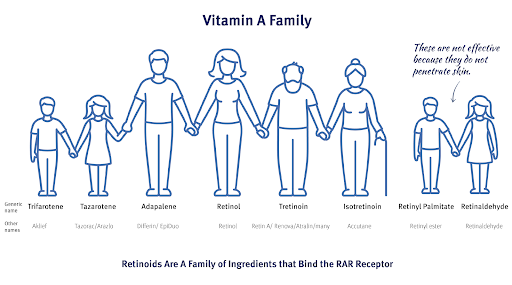
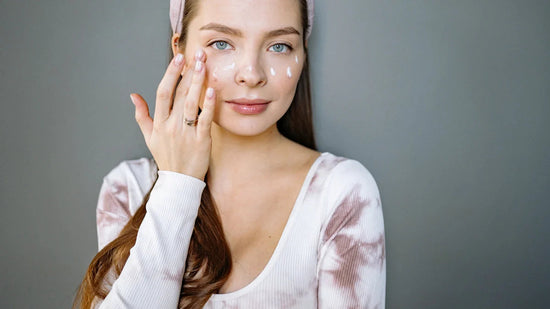


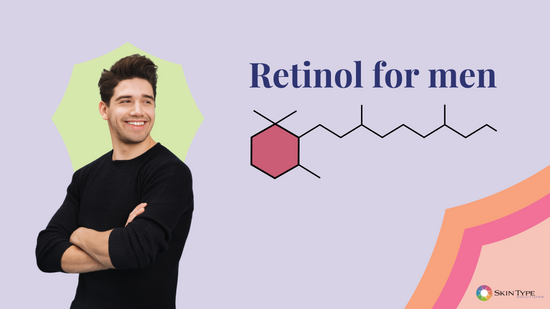
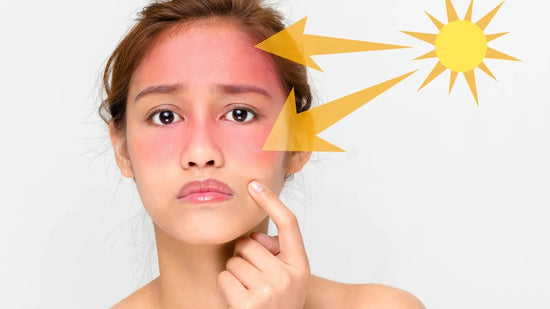
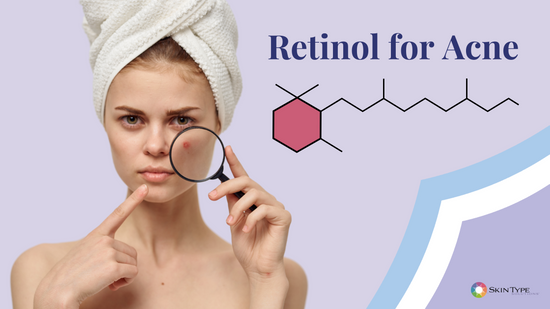
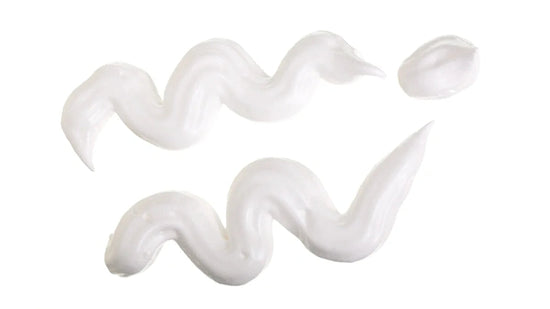



R on
Retinaldehyde (also known as Retinal) is the strongest non-prescription retinoid.
Retinaldehyde is 11x stronger than Retinol.
Retinaldehyde only needs to be converted once to become Retinoic Acid (aka Tretinoin). Retinols need to be converted twice to become Retinoic Acid.
Retinaldehyde CANNOT be called a Retinol because it is not one.